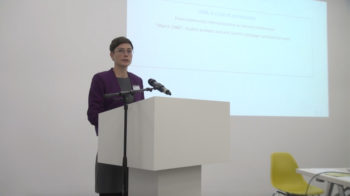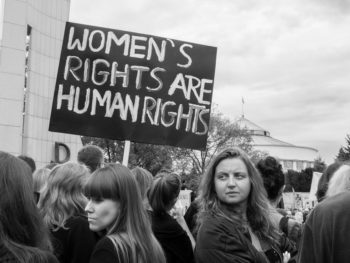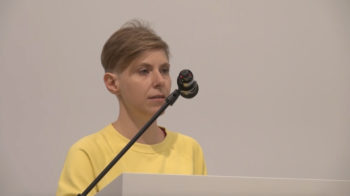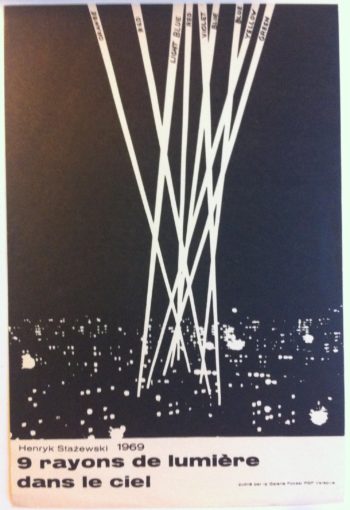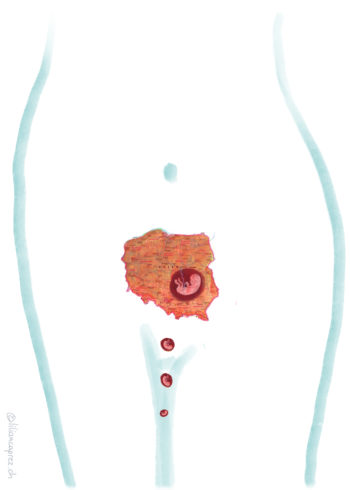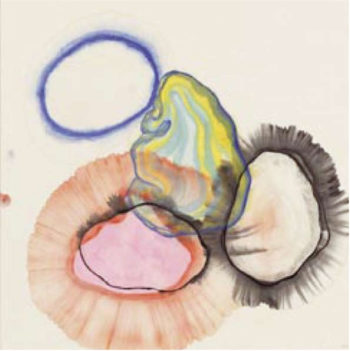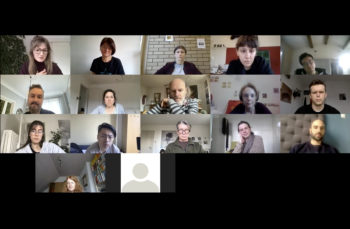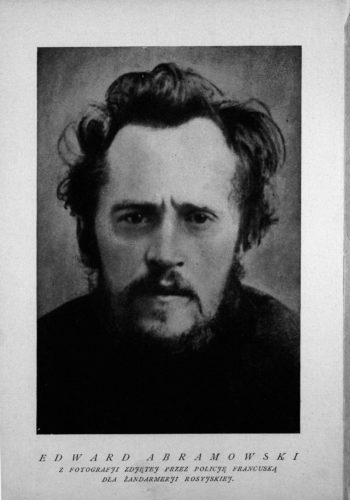Crisis of Communitas or the Extension of «Our» World. A lecture by Nina Seiler
Text: Nina Seiler
Apr 21st 2020
Even though communism initially builds upon a concept of communitas as an egalitarian, open community, its historical reality often turned out more on the side of immunitas: mechanisms of othering and detachment led to the exclusion and condemnation of people because of their class, beliefs, language or ethnical background. “March 1968” symbolically marks a turn […]
Read more
Cultural change in Poland. The end of conservative consensus or a fascist future?
Text: Tadeusz Koczanowicz
Mar 5th 2020
Comments that appeared in the public sphere after the autumn elections in Poland didn’t take into account an important cultural dimension of the elections. The same can be said about the articles on the upcoming presidential elections in May 2020. People writing about Polish politics seem to look only at surveys or analyze performances of […]
Read more
Transformation. Memory and Matter in Early Polish Capitalism
Text: Dorota Sosnowska
Mar 30th 2020
The process of political and economic transformation which started in Poland in the late eighties is narrated in terms of regaining freedom and establishing democracy. The end of the totalitarian regime also brought the end of censorship and political persecution, the beginning of the free market, and the free flow of commodities. However, on the […]
Read more
The Herstory of the Black Protest. Solidary fight for democracy
Text: Weronika Szczawińska
Jan 21st 2020
The Czarny Protest (‘Black Protest’, a protest of women dressed in black) is one of the most important phenomena of the twenty-first century Poland. It is a series of events, a protracted revolution, an outcome of activities carried out by various groups and initiatives. It is linked with the past as well as the future. […]
Read more
Polish Transformation: Community Crisis and Question of Ephemerality in Arts. A lecture by Dorota Sosnowska
Text: Dorota Sosnowska
May 1st 2020
The process of political and economic transformation which started in Poland in late eighties is narrated in terms of regaining freedom and establishing democracy. The end of totalitarian regime brought the end of censorship, of political persecution, the beginning of the free market and free flow of commodities. But on the other hand Polish transformation […]
Read more
Die Unschärfe zwischen den Strahlen: Henryk Stażewskis Installation «9 rayons de lumière dans le ciel»
Text: Pei Bei Xu
May 28th 2020
Der Kontrast von klaren Linien und Unschärfe, die Position zwischen abstrakter Kunstinstallation und politischer Propaganda: Konzeptuelle Kunst in den späten 1960er-Jahren in der Volksrepublik Polen war ein Balanceakt zwischen individuellen künstlerischen Konzepten und Ansprüchen oder Interpretationen von institutioneller Seite. Dieser Beitrag diskutiert die künstlerische und politische Unschärfe als Mittel sowie die Funktionen des «Dazwischen» an Henryk Stażewskis Entwurf und Installation von «9 rayons de lumière dans le ciel» von 1969/70.
Read more
Polens Opferrolle. Interview mit Dorota Sajewska zur Abtreibungsdebatte in Polen.
Text: Sandra Biberstein
Oct 24th 2020
Am 22. Oktober 2020 hat das oberste Gericht Polens das bereits restriktive Abtreibungsgesetzes verschärft. Die vorsitzende Verfassungsrichterin Julia Przylebska erklärte Schwangerschaftsabbrüche im Falle einer schweren Fehlbildung des Fötus für verfassungswidrig. Warum in der Abtreibungsdebatte der letzten Jahre das «ungeborene polnische Kind» als radikale Manifestation des Opfers einer atheistischen, also nicht-polnischen Gesellschaft gesehen wird und wie diese Opferrolle mit der Geschichte Polens zusammenhängt, erklärte die Kulturwissenschaftlerin Dorota Sajewska im Interview, das im März 2017 geführt wurde.
Read more
Pandemische Apartheid
Text: Przemysław Wielgosz
Mar 4th 2021
Kaum wurde der große Impf-Sieg über die Pandemie verkündet, begannen schon die Probleme. Lieferpausen sollen die Produktionskapazität der Fabriken erhöhen. Die bereits bestellten Mengen machen die Impfstoffe für ärmere Länder praktisch unerreichbar. Und die Strategien in der Impfstoffproduktion sowie -verteilung machen klar: Die vorgeschlagenen Lösungen kranken an der Privatisierung des Gesundheitssektors und der Ausrichtung an maximalem Gewinn. Ein Kommentar von Przemysław Wielgosz.
Read more
Webinar Theater and Communitas #3: Come Together and Enter Full Screen by Wojtek Ziemilski
Mar 21st 2021
Above a stage played by five actors, an inscription forbids the sitting audience from entering the stage. Yet this is what the actors of Come Together relentlessly invite the spectators to do throughout the entirety of the performance. Through all kinds of speeches and actions, the actors provoke the audience in a sometimes seductive, sometimes imploring or even […]
Read more
Making of a Nation or a New Social Sensitivity? Edward Abramowski and the Frankfurt School
Text: Tadeusz Koczanowicz
Nov 10th 2022
Today, anti-state slogans, especially in the United States, are strongly associated with right-wing politics. After the 20th century, and especially the last thirty years, the idea of “non-state socialism” or “stateless socialism” might sound like a contradiction. That’s what I initially found interesting in the writings of Edward Abramowski, a Polish socialist, psychologist and intellectual […]
Read more
